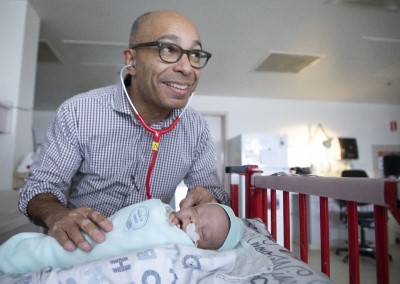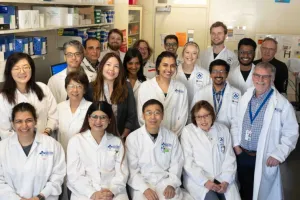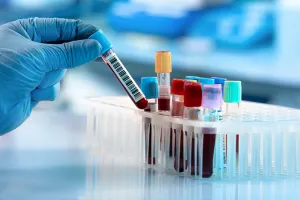Gene therapy for deadly newborn lung disease shows promise in mice
 "Finding a solution to surfactant deficiency would be a game-changer for these babies and their families. We're doing all we can to get this promising gene therapy ready for clinical trials," said Dr. Bernard Thébaud.One in a million babies are born with Surfactant Protein B deficiency, a genetic disorder in the lungs that will kill them before their first birthday. The only cure is a lung transplant.
"Finding a solution to surfactant deficiency would be a game-changer for these babies and their families. We're doing all we can to get this promising gene therapy ready for clinical trials," said Dr. Bernard Thébaud.One in a million babies are born with Surfactant Protein B deficiency, a genetic disorder in the lungs that will kill them before their first birthday. The only cure is a lung transplant.
However, a gene therapy developed by researchers at The Ottawa Hospital, CHEO and uOttawa in collaboration with the University of Guelph, is showing dramatic results in mice with this disorder, improving their life expectancy from two days to over six months, according to a study published in Nature Communications.
Called AAV, this therapy delivers a normal copy of the surfactant gene to the lung's stem cells, restoring the production of a detergent-like substance that keeps the air sacs in the lungs open. The therapy does wear off over time, so the team is testing whether recurrent doses could make it feasible as a long-term treatment, or as a temporary measure until a lung transplant is available.
This gene therapy may also be able to treat other debilitating and life-threatening genetic lung disorders that appear later in children and young adults. The team led by Dr. Bernard Thébaud and Dr. Sarah Wootton recently received $364,000 from the Stem Cell Network to pursue large-scale manufacturing of AAV and to take the steps necessary to make it ready for clinical trials.
Dr. Thébaud and collaborators also recently founded the company Inspire Biotherapeutics to help accelerate this research.
"Finding a solution to surfactant deficiency would be a game-changer for these babies and their families. We're doing all we can to get this promising gene therapy ready for clinical trials." said Dr. Bernard Thébaud, neonatologist and senior scientist at The Ottawa Hospital and CHEO and professor at the University of Ottawa.
Study funding: CIHR, The Lung Association- Ontario, The Mason Research Fund, NIH, European Respiratory Society, Deutsche Forschungsgemeinschaft
Study authors: Kang, Martin H; van Lieshout, Laura P.; Xu, Liqun; Domm, Jakob M.; Vadivel, Arul; Renesme, Laurent; Mühlfeld, Christian; Hurskainen, Maria; Mižíková, Ivana; Pei, Yanlong; van Vloten, Jacob P.; Thomas, Sylvia P.; Milazzo, Claudia; Cyr-Depauw, Chanèle; Whitsett, Jeffrey A.; Nogee, Lawrence M.; Wootton, Sarah K.; Thébaud, Bernard
Stem Cell Network grant Primary Investigator: Bernard Thébaud
Stem Cell Network grant Co-investigators and collaborators: Sarah Wootton, Dean Fergusson, Rénald Gilbert, Parminder Chahal, John Bell, Amine Kamen, Larry Nogee, Jeffrey Whitsett, Alice Tarantal, Michael Jamieson, Hartmut Grasemann, Nicolaus Schwerk, Matthias Griese, Kednapa Thavorn
Core resources: uOttawa Histology Core, CHEO Electron Microscope lab, Ottawa Methods Centre, Biotherapeutics Manufacturing Centre, Blueprint Translational Research Group
The Ottawa Hospital is a leading academic health, research and learning hospital proudly affiliated with the University of Ottawa. Dr. Bernard Thébaud is a member of The Ottawa Hospital's Regenerative Medicine Program, which includes the Sinclair Centre for Regenerative Medicine and the Sprott Centre for Stem Cell Research. Research at The Ottawa Hospital is possible because of generous donations to The Ottawa Hospital Foundation.
Core Facilities:
Learn more about:
The Ottawa Hospital is a leading academic health, research and learning hospital proudly affiliated with the University of Ottawa and supported by The Ottawa Hospital Foundation.


